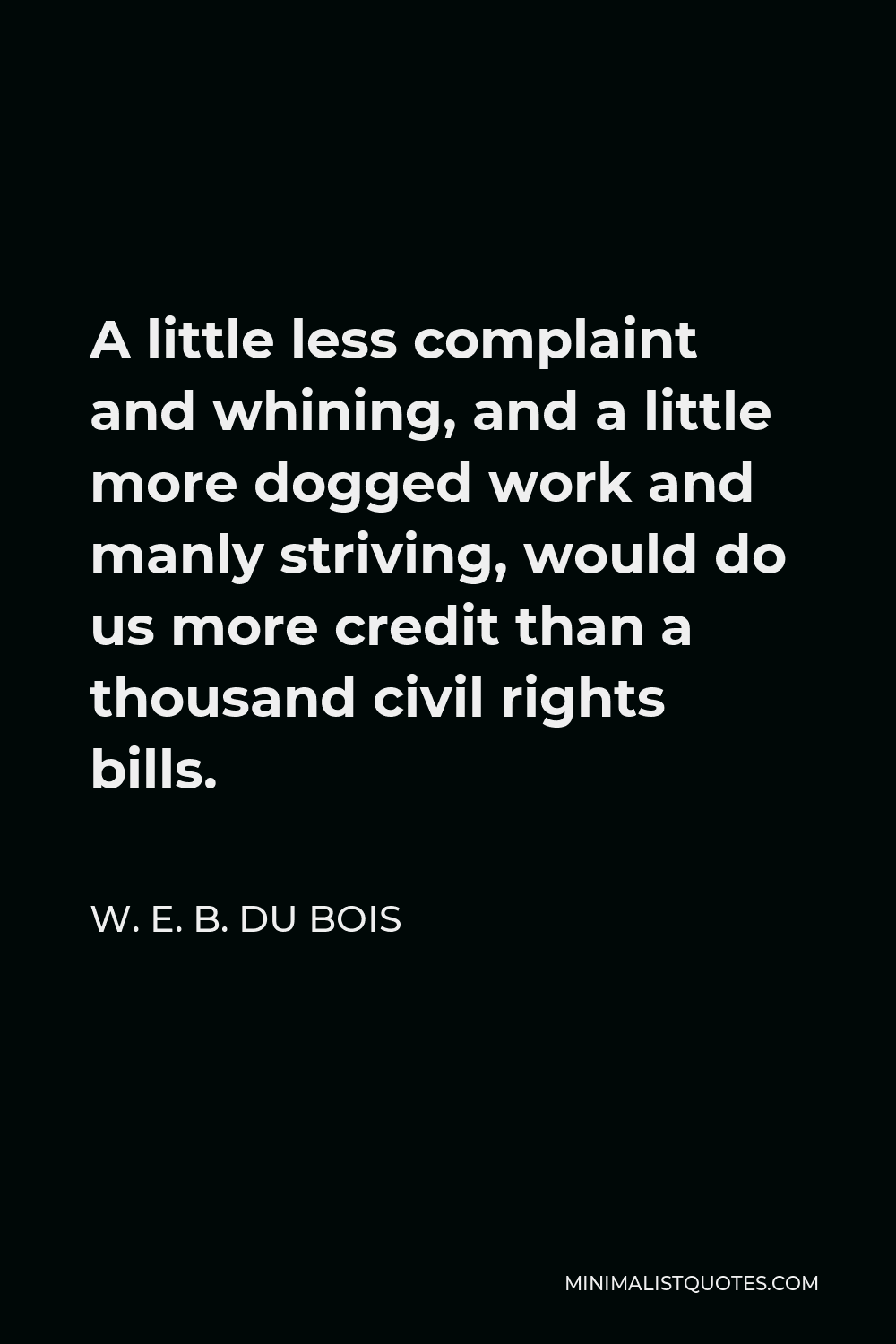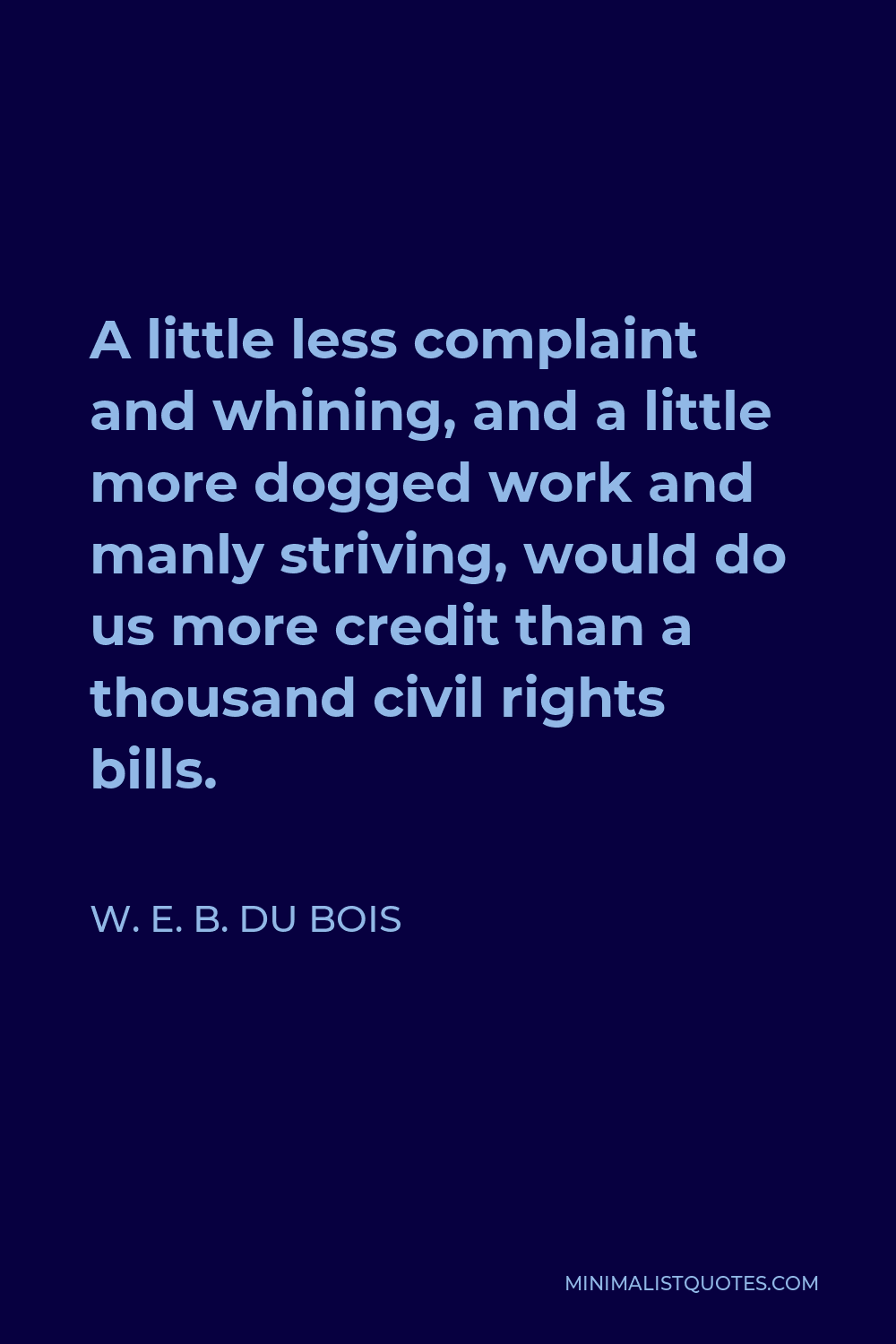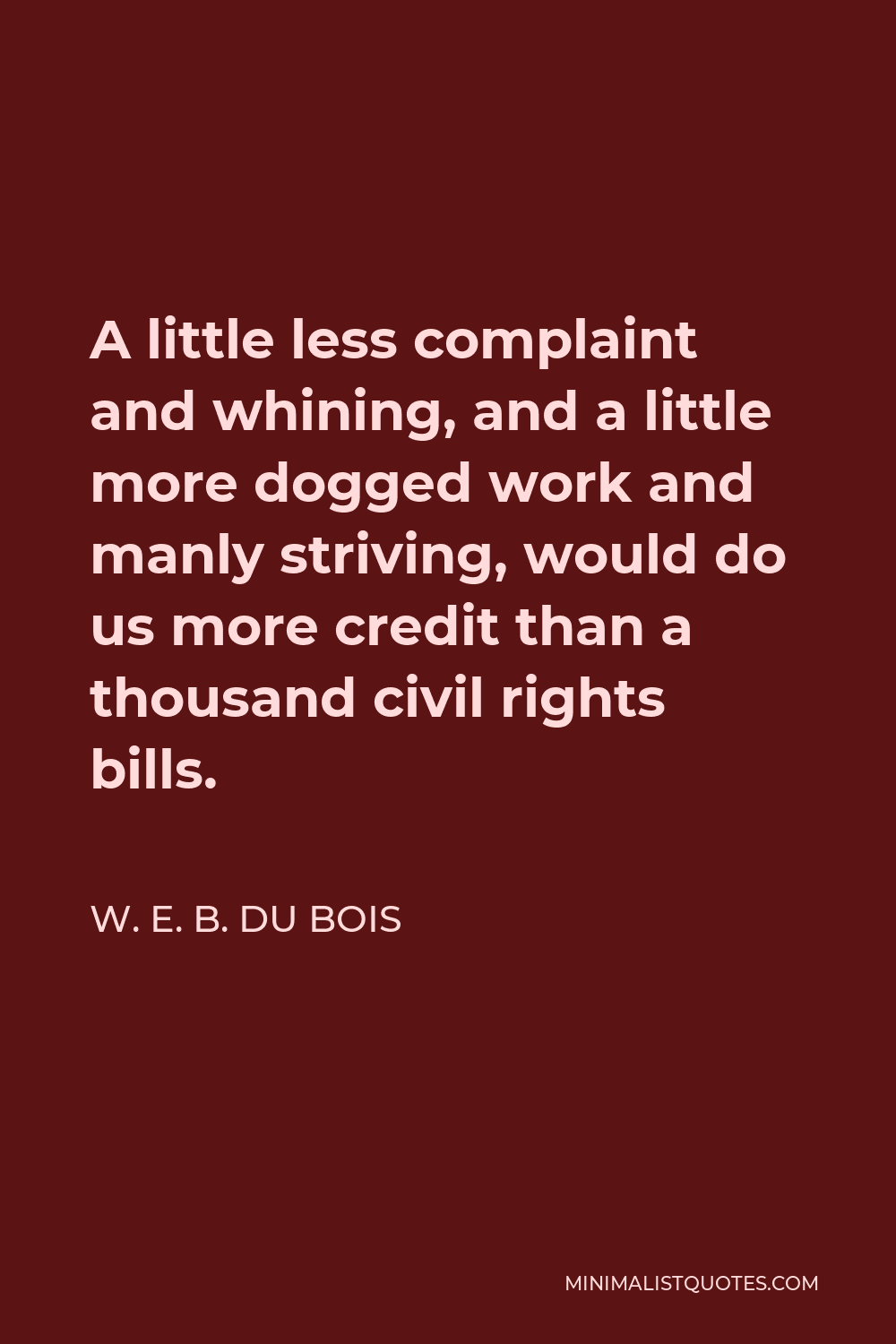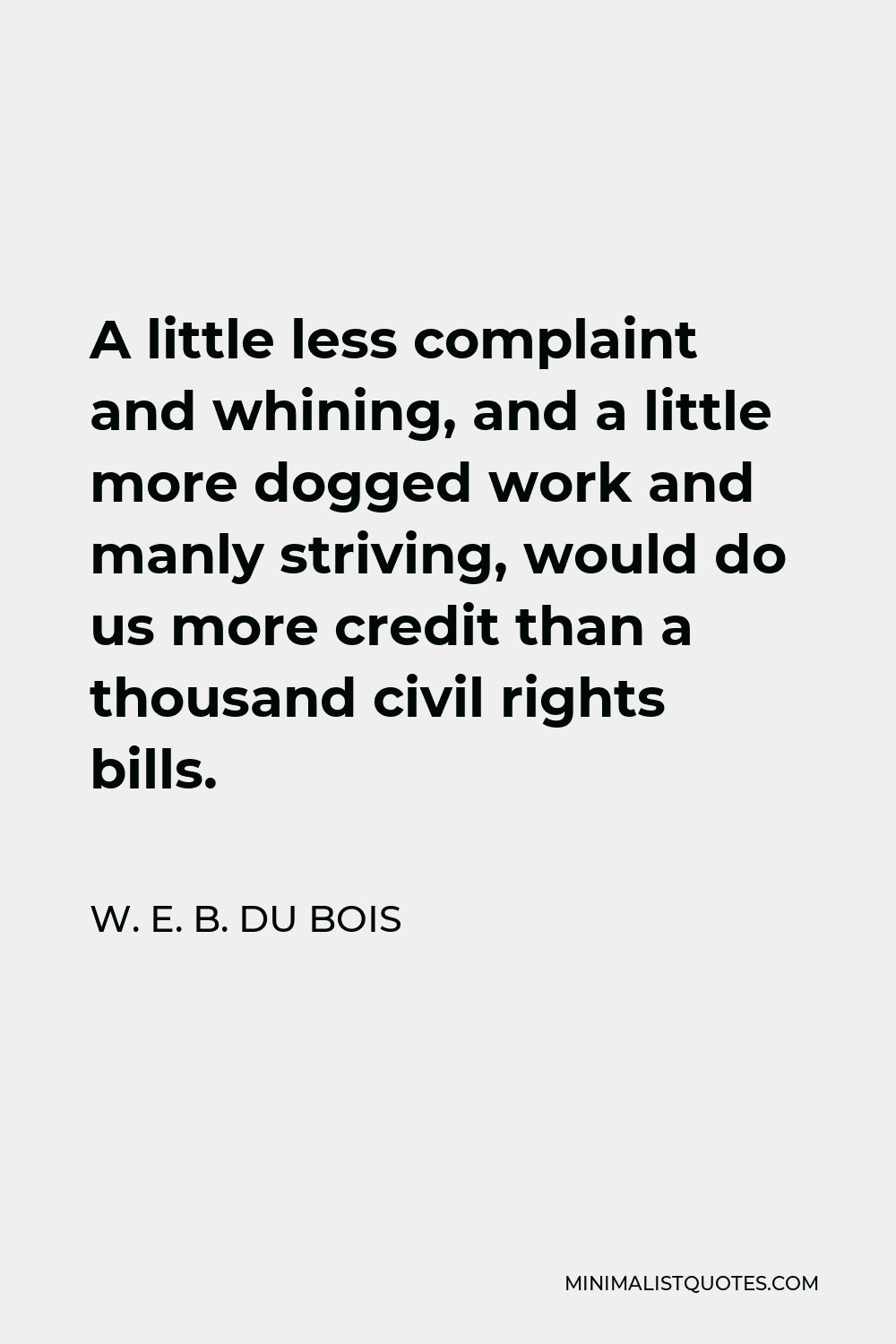Children learn more from what you are than what you teach.
W. E. B. DU BOISA little less complaint and whining, and a little more dogged work and manly striving, would do us more credit than a thousand civil rights bills.
More W. E. B. Du Bois Quotes
-







-





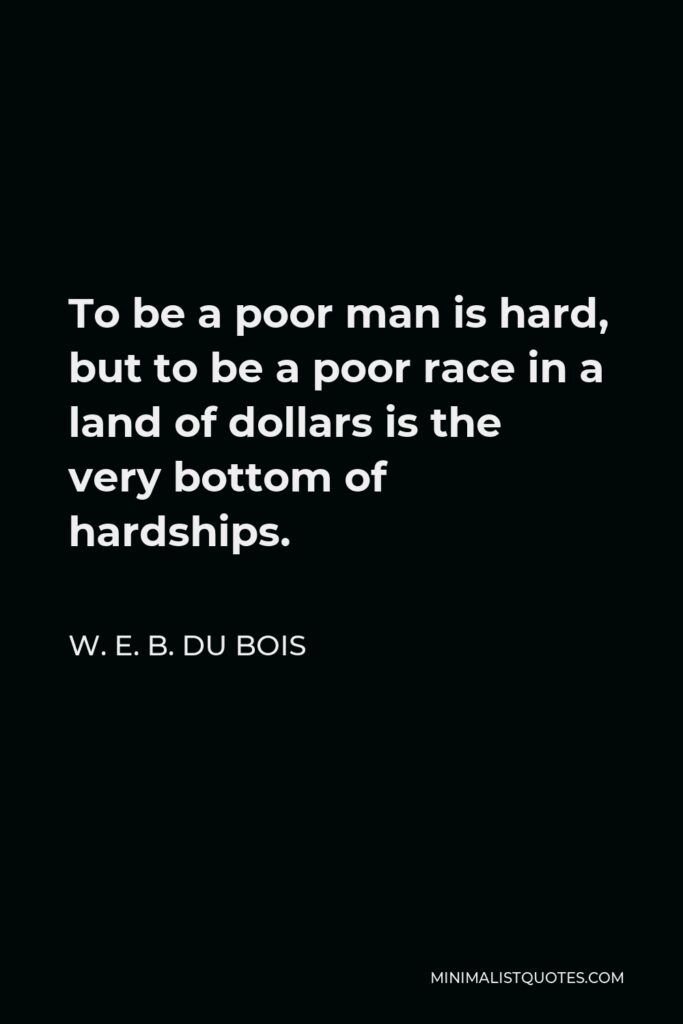

To be a poor man is hard, but to be a poor race in a land of dollars is the very bottom of hardships.
W. E. B. DU BOIS -





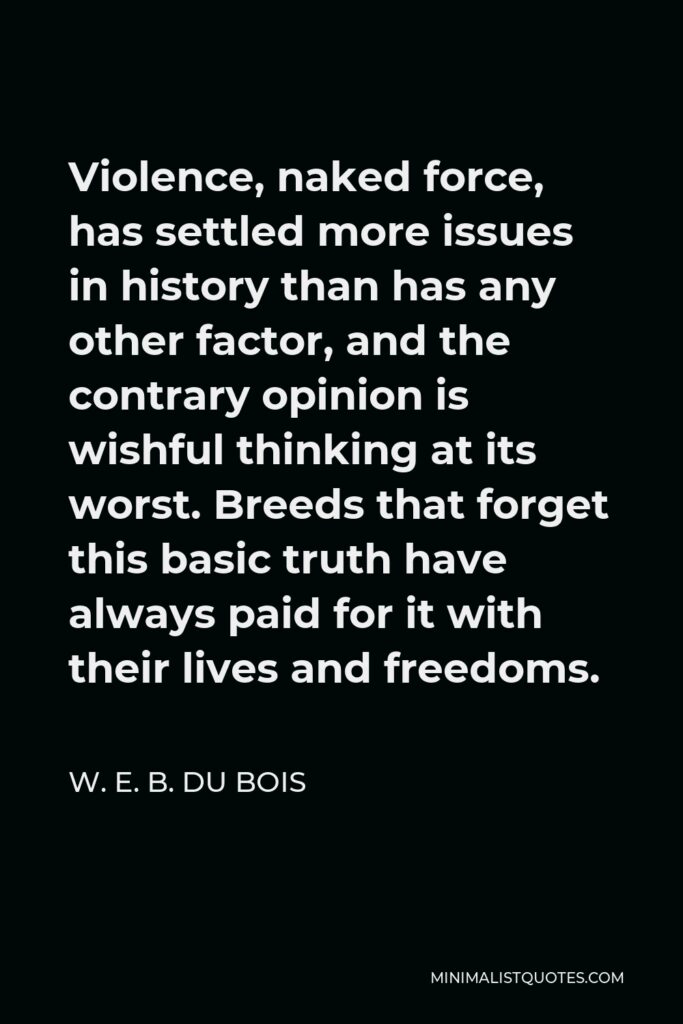

Violence, naked force, has settled more issues in history than has any other factor, and the contrary opinion is wishful thinking at its worst. Breeds that forget this basic truth have always paid for it with their lives and freedoms.
W. E. B. DU BOIS -





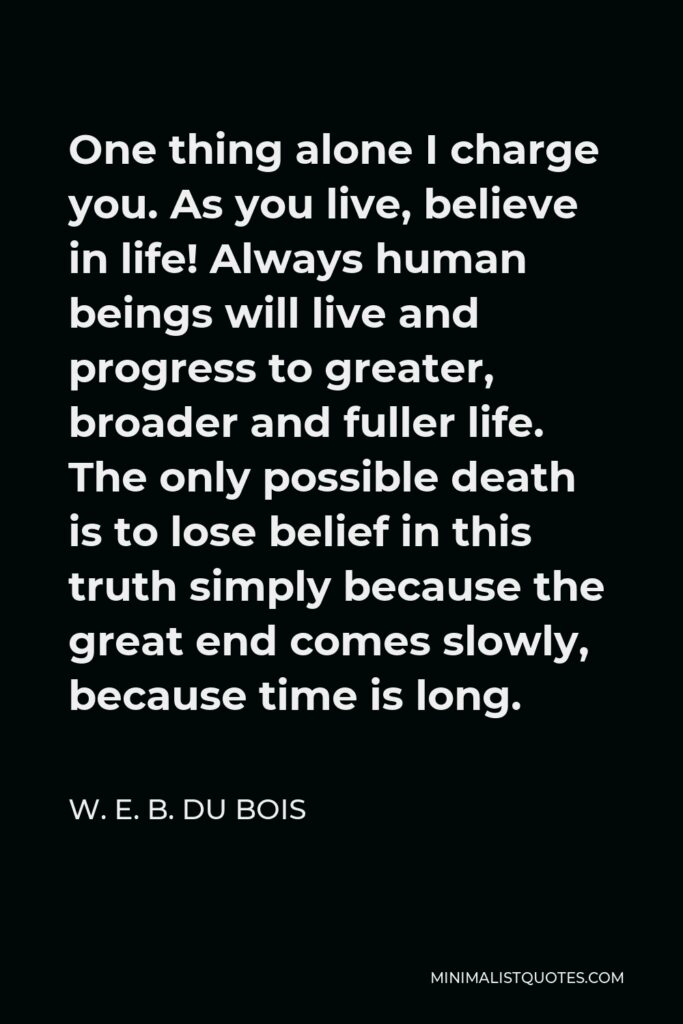

One thing alone I charge you. As you live, believe in life! Always human beings will live and progress to greater, broader and fuller life. The only possible death is to lose belief in this truth simply because the great end comes slowly, because time is long.
W. E. B. DU BOIS -





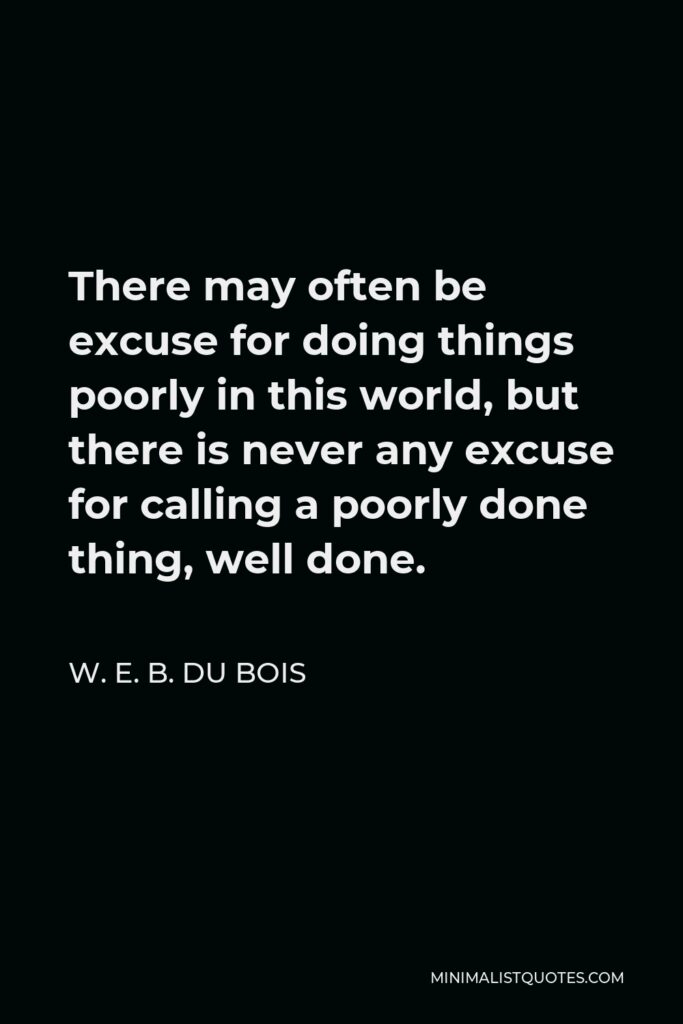

There may often be excuse for doing things poorly in this world, but there is never any excuse for calling a poorly done thing, well done.
W. E. B. DU BOIS -





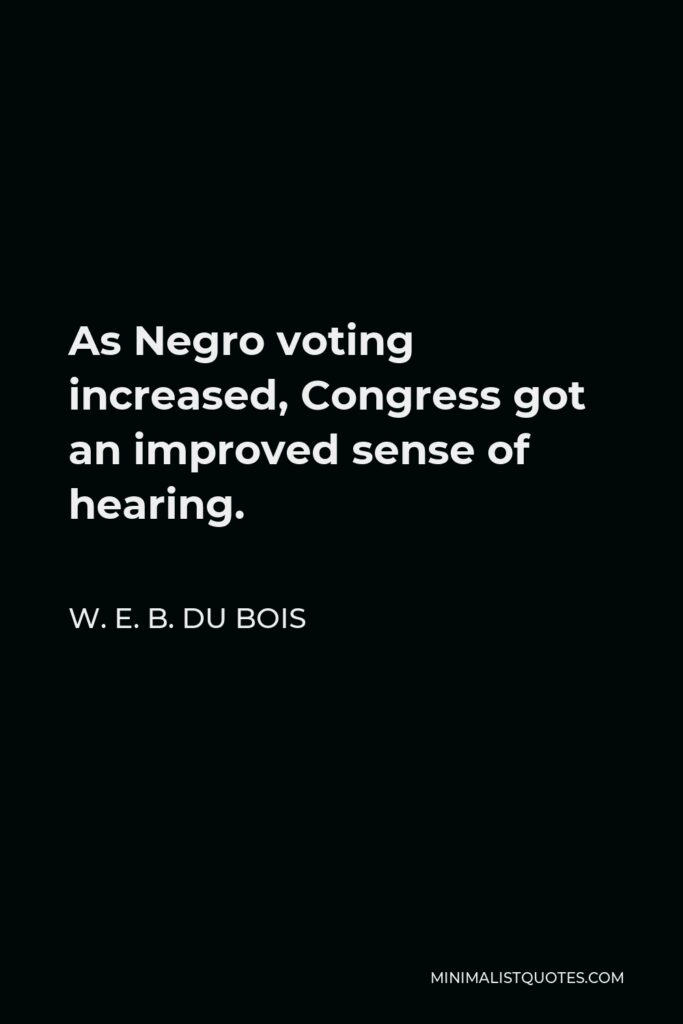

As Negro voting increased, Congress got an improved sense of hearing.
W. E. B. DU BOIS -





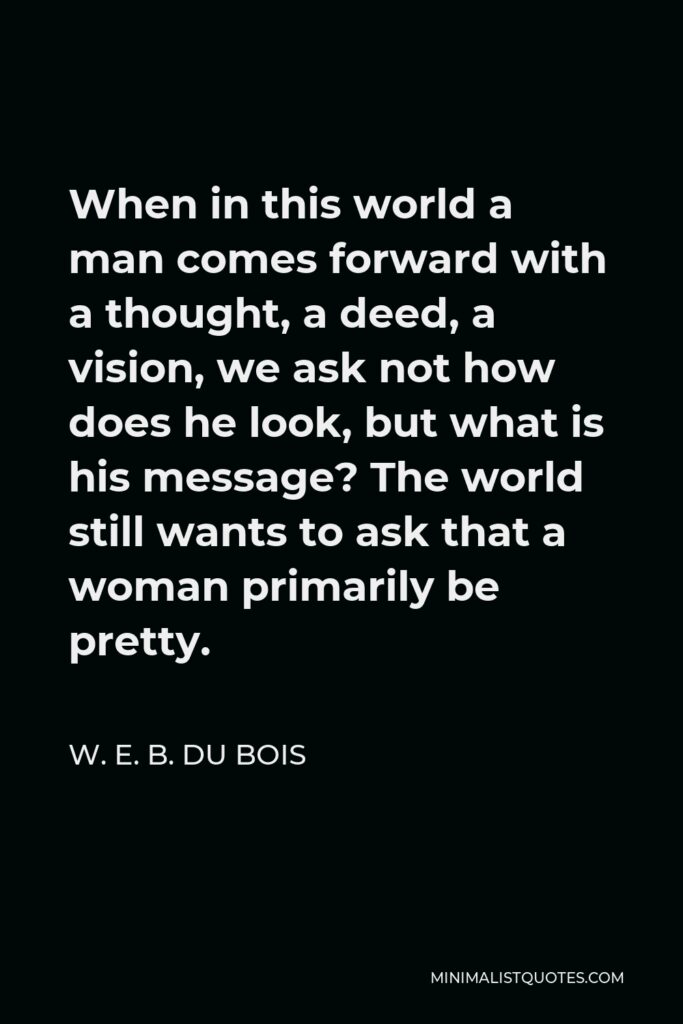

When in this world a man comes forward with a thought, a deed, a vision, we ask not how does he look, but what is his message? The world still wants to ask that a woman primarily be pretty.
W. E. B. DU BOIS -







I believe in pride of race and lineage and self: in pride of self so deep as to scorn injustice to other selves.
W. E. B. DU BOIS -





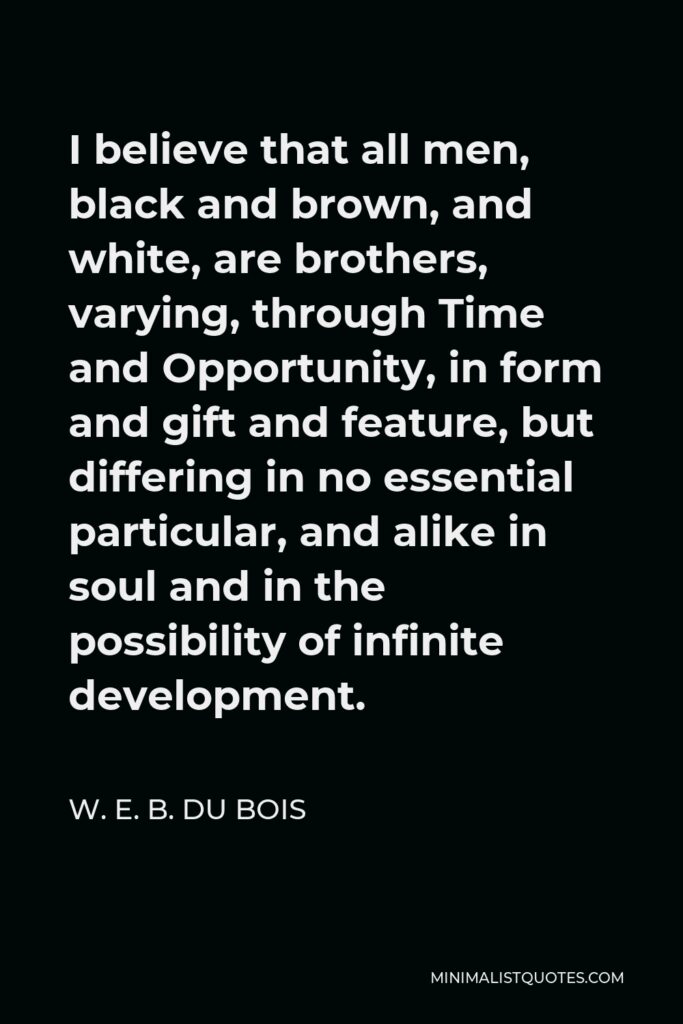

I believe that all men, black and brown, and white, are brothers, varying, through Time and Opportunity, in form and gift and feature, but differing in no essential particular, and alike in soul and in the possibility of infinite development.
W. E. B. DU BOIS -





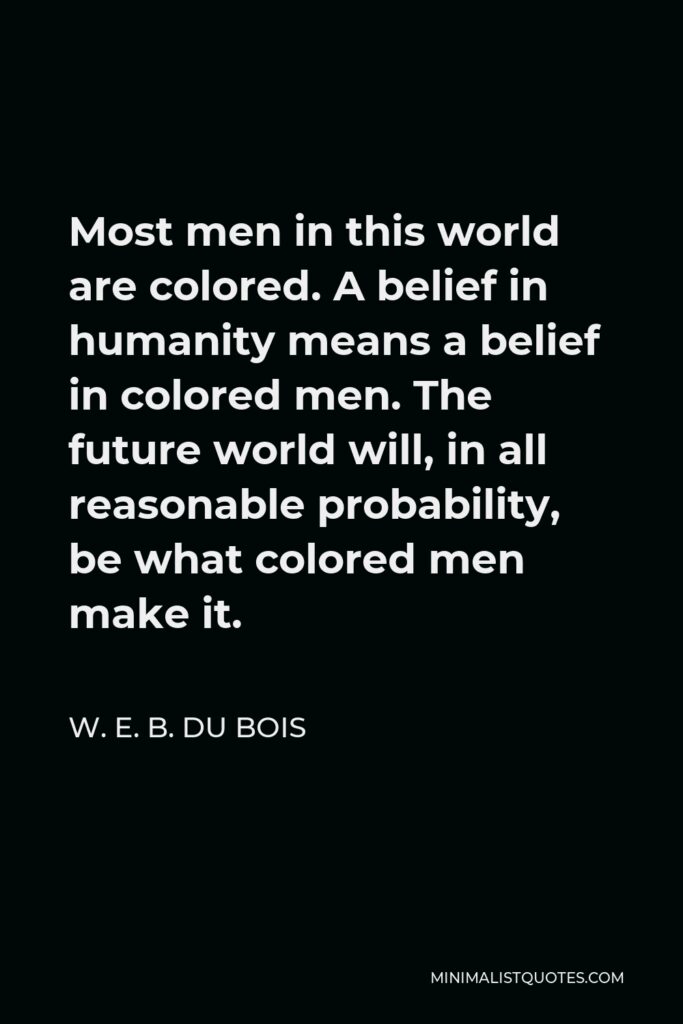

Most men in this world are colored. A belief in humanity means a belief in colored men. The future world will, in all reasonable probability, be what colored men make it.
W. E. B. DU BOIS -





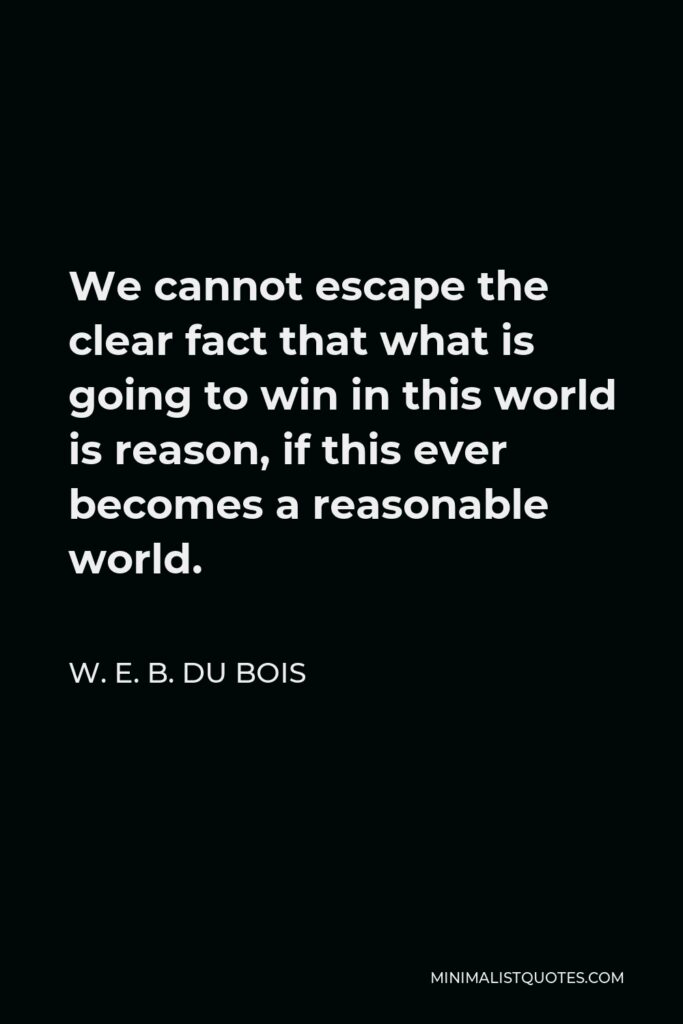

We cannot escape the clear fact that what is going to win in this world is reason, if this ever becomes a reasonable world.
W. E. B. DU BOIS -







The shadow of a mighty Negro past flits through the tale of Ethiopia the shadowy and of the Egypt the Sphinx. Throughout history, the powers of single blacks flash here and there like falling stars, and die sometimes before the world has rightly gauged their brightness.
W. E. B. DU BOIS -





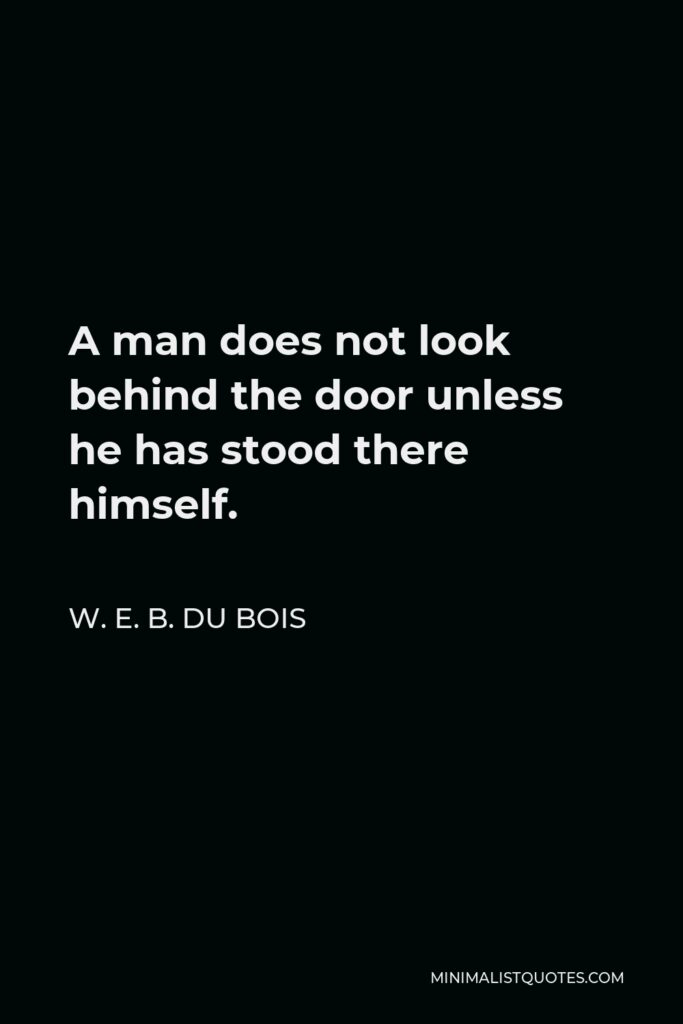

A man does not look behind the door unless he has stood there himself.
W. E. B. DU BOIS -





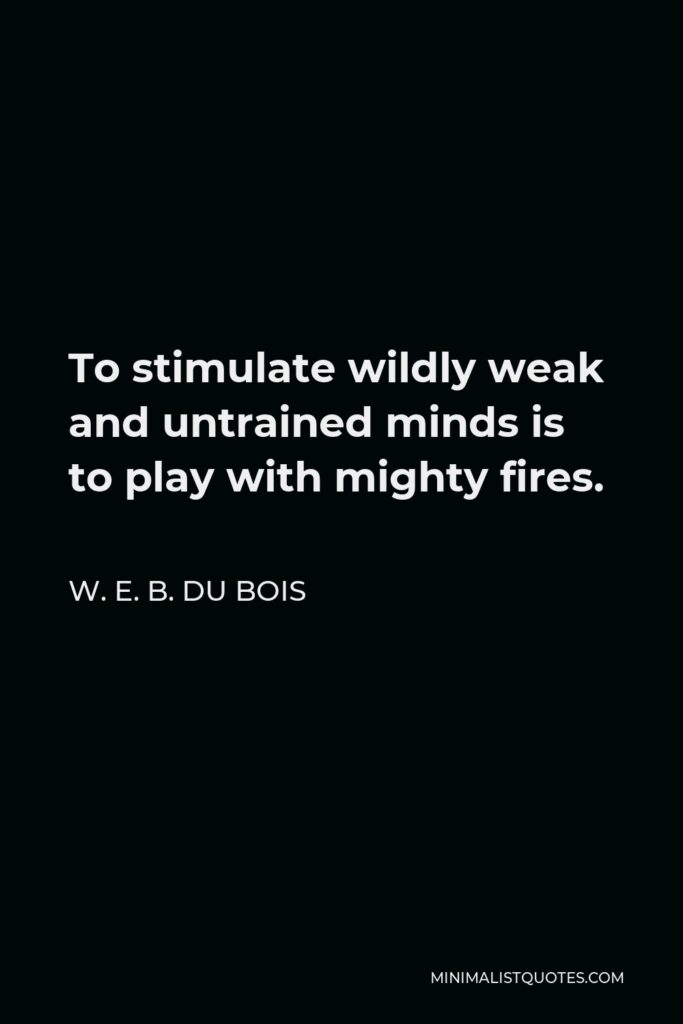

To stimulate wildly weak and untrained minds is to play with mighty fires.
W. E. B. DU BOIS -





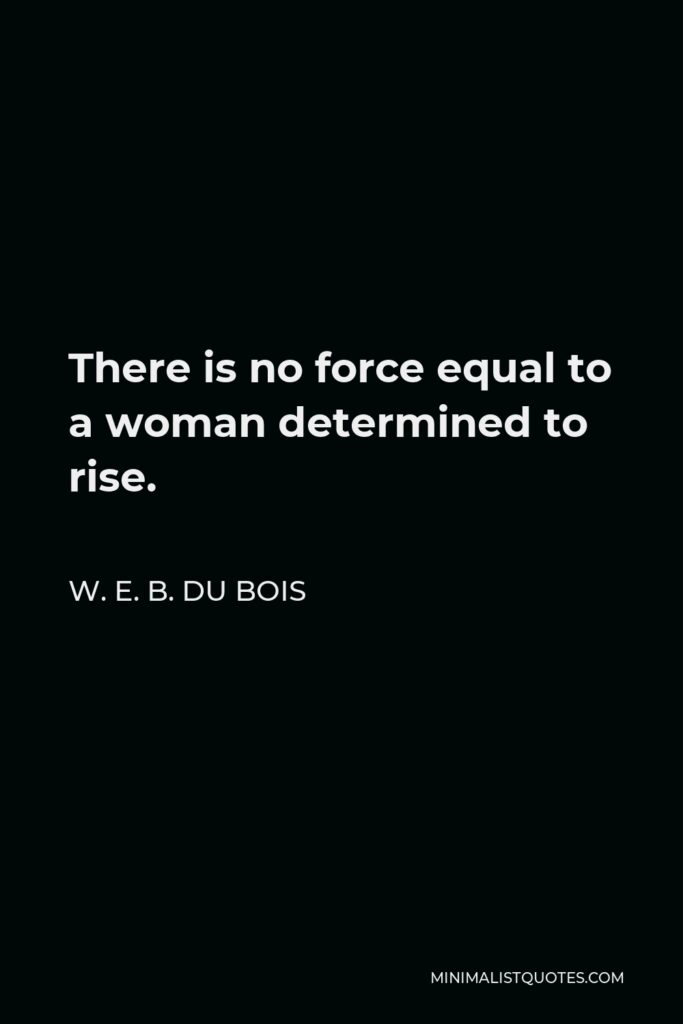

There is no force equal to a woman determined to rise.
W. E. B. DU BOIS -





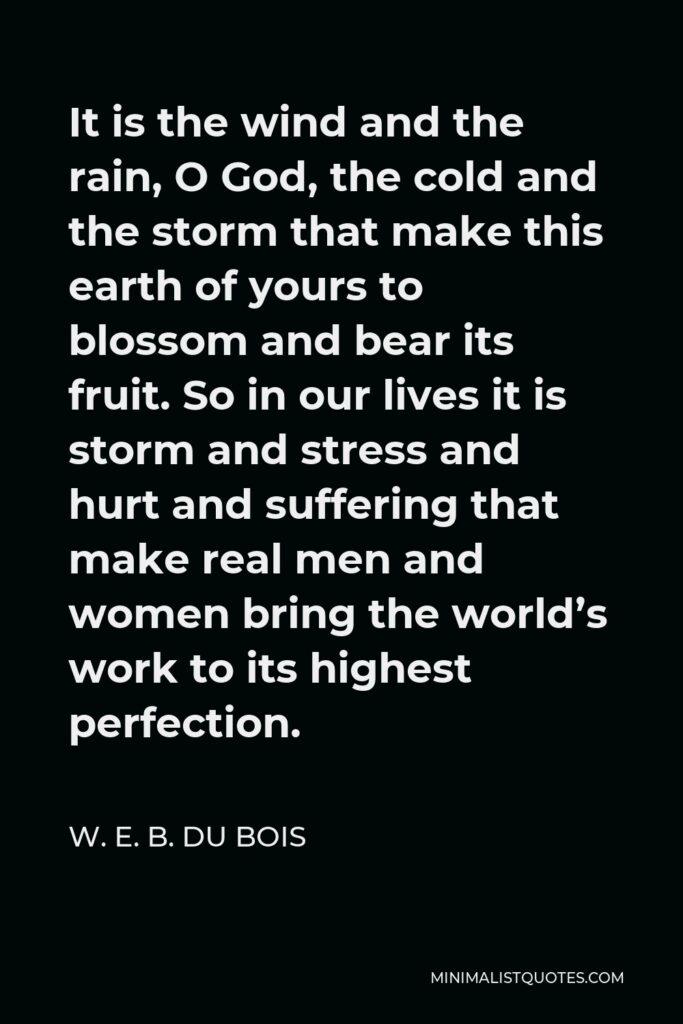

It is the wind and the rain, O God, the cold and the storm that make this earth of yours to blossom and bear its fruit. So in our lives it is storm and stress and hurt and suffering that make real men and women bring the world’s work to its highest perfection.
W. E. B. DU BOIS
